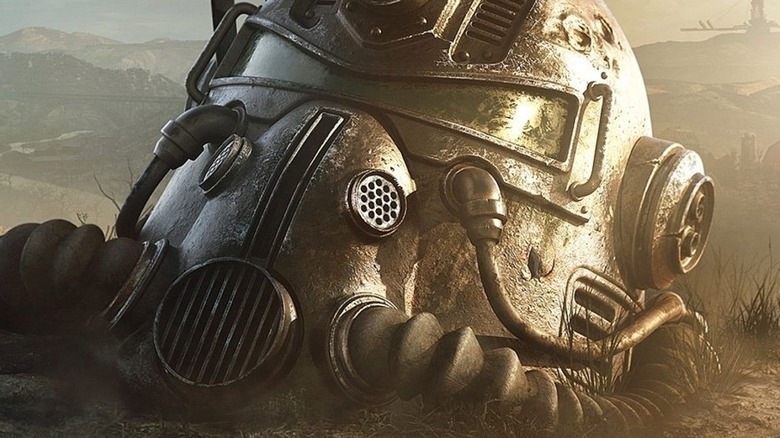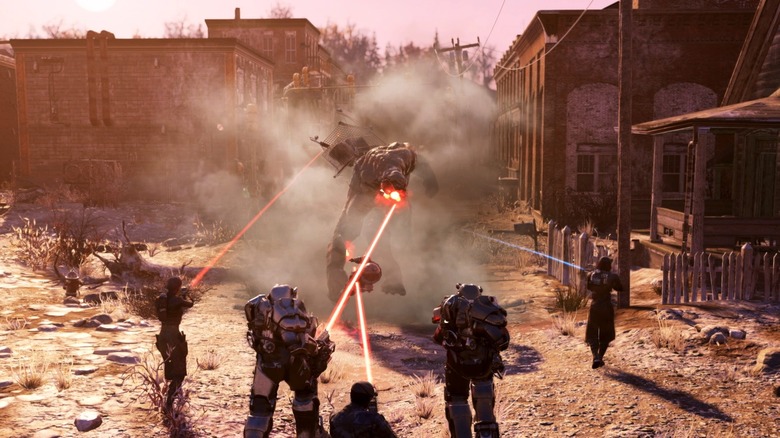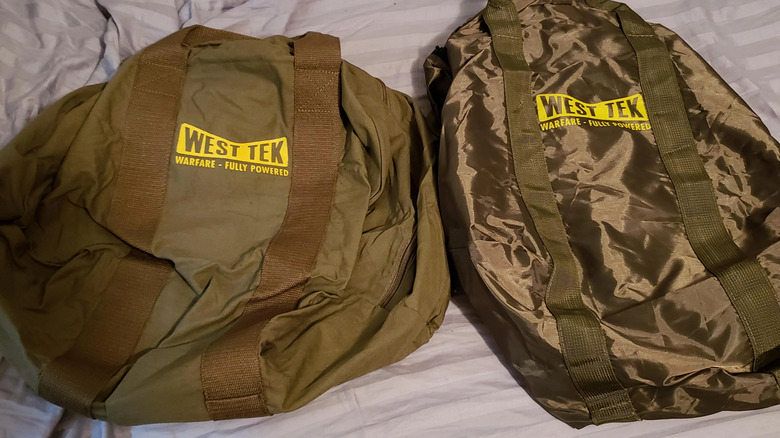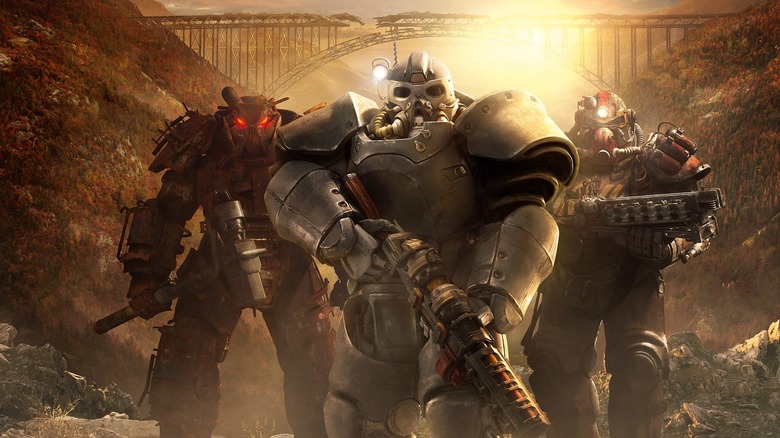Why Fallout 76 Was A Major Flop Despite The Hype
The "Fallout" series has been a hit with gamers since the first title released back in 1997. Its blend of sci-fi, dark humor, and RPG mechanics makes it a unique experience that continues to please fans. It's no surprise, then, that when Bethesda announced an MMO entry in the franchise, the upcoming game was the subject of incredible hype.
"Fallout 76" promised to blend the story and action of the IP with multiplayer mechanics, finally letting the community explore the post-apocalyptic wasteland with their friends and face off against human foes. It brought the series to a new region with a setting in West Virginia and updated both classic and more recent elements of the series, like the S.P.E.C.I.A.L system and camp building. There was plenty of reason to get excited for the title.
Unfortunately for fans, and for Bethesda, "Fallout 76" proved to be a major flop, selling poorly at launch, sparking numerous controversies, and ultimately serving up a critical and commercial disappointment. The question is: How could things go so wrong?
From hyped reveal to rocky launch
"Fallout 76" was revealed to high anticipation and fanfare thanks to its clever marketing. Ahead of its unveiling, a countdown timer with a classic "Fallout" bobblehead appeared on Bethesda's Twitch account, letting fans know that something big was coming. This stream attracted millions of viewers over the course of a day (per The Verge) and over one hundred thousand at the same time (per Kotaku). When the game launched later that year, however, the hype quickly turned to frustration and disappointment.
Within a week of its release on November 14, 2018, "Fallout 76" bombed as it lost players and garnered negative reviews. Server issues and a continuous string of patches made the title unplayable for many and several design decisions proved to be a bust. The choice to not have any human NPCs, while explained narratively, would go on to join the list of controversial features immediately regretted by game developers. The lack of a compelling single-player story and the failure to translate classic elements of the series like V.A.T.S. into a multiplayer experience ultimately left "Fallout 76" not feeling like a "Fallout" entry to many.
Beyond gameplay issues, Bethesda made other missteps that burned goodwill among players and sparked controversy which detracted from the launch.
Bait and switch bags
Like many games, "Fallout 76" offered a special collector's edition that came with lots of bonus content and even some physical goodies. Selling for $200, this version was advertised as including a real-world canvas bag. When players that had sprung for this edition got their hands on it, however, the merchandise turned out different than advertised. Rather than a sturdy, canvas bag, a much cheaper nylon bag was included.
Already angry, fans became even more upset when they learned that some online influencers were given collector's editions with the original canvas bags, showing that some of these bags were made but that they were reserved for celebrities, with the lesser version going to regular players. Further, Bethesda initially refused to honor its advertised promise, saying that it wouldn't be giving fans canvas bags and instead offering what amounted to approximately $5 of in-game currency as compensation.
While community outrage and public pressure eventually forced Bethesda to reverse course, the canvas bags wouldn't be shipped until the following year and the damage to the company's image and perceptions of the game was already done.
Fallout 76 was rushed and released too early
Ultimately, "Fallout 76" seems to have flopped because it simply wasn't ready for launch. About eight months after its release, executive producer Todd Howard told IGN that he knew the game wasn't going to be well-received and that he had hoped it would be improved over time. This revelation drew anger from some fans and can certainly explain many of the issues that plagued the title early on. It can also explain the later news that development was a bigger mess than many realized with employees forced to work an extended and brutal crunch period.
While updates, additions, and improvements over several years have made "Fallout 76" finally worth playing, there's no arguing that its launch and early days were a significant failure for Bethesda. It left fans cold and did notable harm to the company's reputation. Today, it stands as a lesson to other developers of missteps to avoid.




